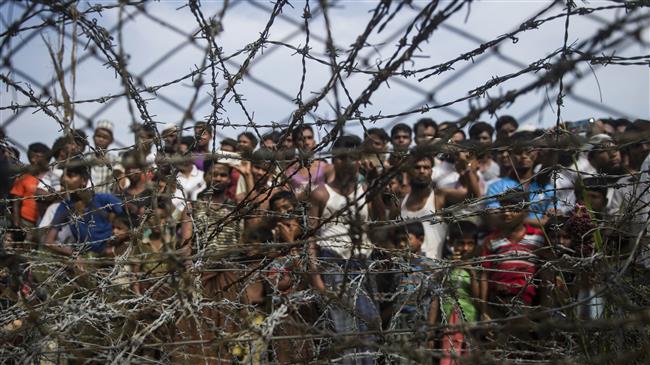
HRW calls for Security Council resolution on Rohingya crisis

Kenneth Roth, executive director of the HRW, warned on Friday that Myanmar
should be referred to the ICC or else no one will be held accountable.
"The lack of a UN Security Council resolution has left the Myanmar government
convinced that it has literally gotten away with mass murder," Roth told
reporters in Myanmar’s city of Yangon on Friday. He also called for targeted
sanctions on perpetrators and an arms embargo.
Myanmar has come under intense pressure since the military launched yet another
heavy-handed crackdown against the Muslim minority in Rakhine state on August
25, 2017, using a number of armed attacks on military posts as the pretext.
About 700,000 Rohingya Muslims have fled the predominantly-Buddhist Myanmar to
neighboring Bangladesh since August last year, bringing with them horrifying
stories of massacres, gang rape and arson by Myanmar’s military forces and
Buddhist mobs.
The UN delegation will speak to refugees in Bangladesh before they head to
Myanmar early next week to visit Rohingya-majority Rakhine.
They will also meet Myanmar's leader Aung San Suu Kyi, who has come under global
scrutiny for backing an ethnic cleansing campaign against the country's Muslim
population.
Myanmar has denied widespread accounts of violence against the persecuted
Rohingya Muslim community in Rakhine.
It took months for Myanmar to agree to the delegation's visit after the UN
leveled accusations of ethnic cleansing in Rakhine.
The visiting delegation is led by Britain, Peru and Kuwait, whose ambassador
Mansour al-Otaibi has stressed the trip is not about "naming and shaming"
Myanmar, but rather to show the country that the "international community is
following the situation and has great interest in resolving it."
The UN Security Council strongly condemned government-sanctioned violence
against Myanmar’s Muslim Rohingya minority in a unanimously-backed statement
released in November last year. The UNSC, however, failed to adopt an
enforceable resolution due to opposition by Myanmar's ally China.
But Roth said this should not be assumed.
"If China wants to veto it should pay the price of turning its back on the
crimes against humanity committed against Rohingya."
Bangladesh and Myanmar signed an agreement late last year to repatriate the
Rohingya Muslim refugees who have crossed the border since August 2017. The
repatriation was delayed due to a lack of preparation as well as protests staged
by Rohingya refugees against the plan to send them back to Myanmar while
conditions were not safe for their return.
The Rohingya have lived in Myanmar for generations but are denied citizenship
and are branded illegal immigrants from Bangladesh, which likewise denies them
citizenship.
Source: Press TV















